|
I am a postdoctoral researcher, currently working at the CEA Grenoble, in the framework of the EU-funded ERC project CARINE. In parallel, I am also a visiting postdoc on the microdiffraction imaging ID01 beamline of the ESRF. Since the beginning of my PhD in 2012, I have been trying to understand the interplay between the microstructure and physical properties of a large range metallic samples. To do so, I am relying predominantly on two tools: synchrotron X-ray diffraction techniques (45 synchrotron beamtimes in the past 9 years) coupled with in situ and operando environments and large-scale Molecular Dynamics simulations. My current research activities rely on this combined experimental/modeling approach to investigate in situ and operando the structural evolution of catalytic nanoparticles during reaction. My expertise in synchrotron techniques and in particular Bragg Coherent Diffraction Imaging CDI is an important asset to the project. In addition, coupling BCDI with atomistic simulations is particularly efficient to understand the role of strain and defects in improving the catalytic activity. Email / CV / Google Scholar / Twitter / Github |

|
|
|
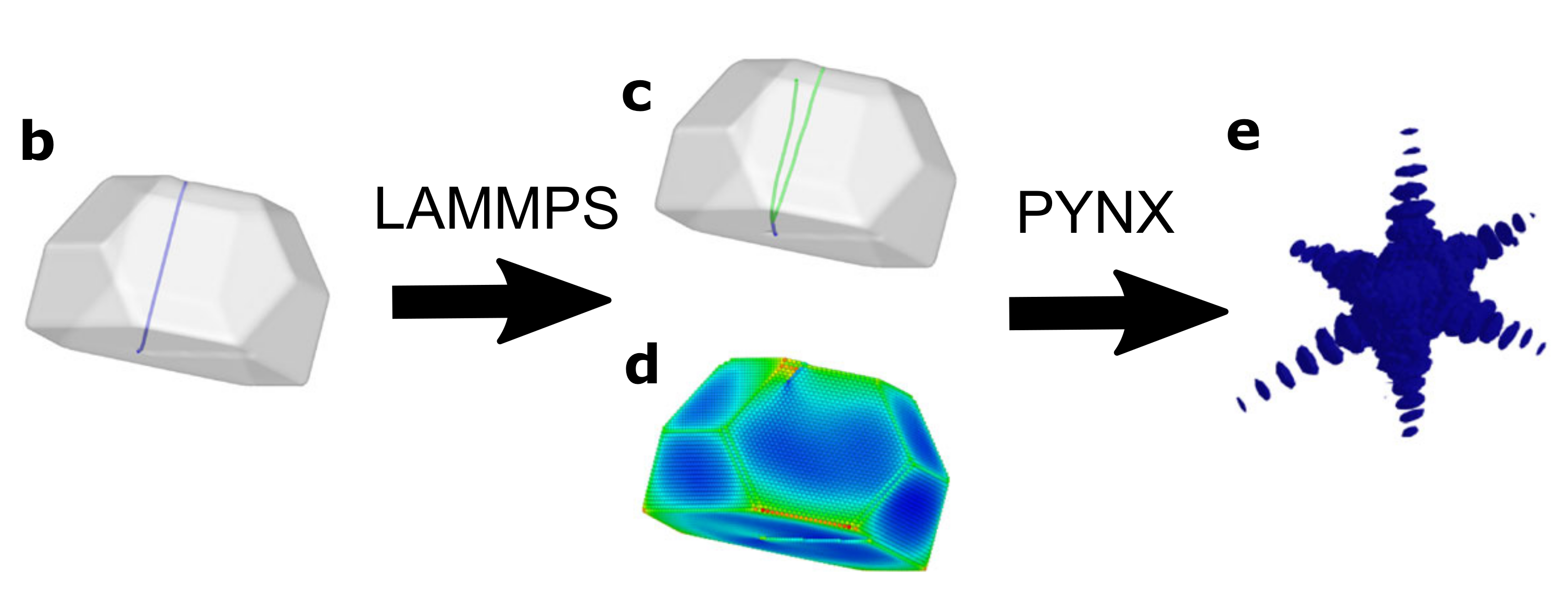 |
Bragg coherent X-ray diffraction Bruce Lim*, Ewen Bellec*, Maxime Dupraz*, Steven J. Leake, Andrea Resta, arXiv In this work, we exploit a computational tool based on a three-dimensional (3D) parametric atomistic model and a convolutional neural network to predict dislocations in a crystal from its 3D coherent diffraction pattern. |
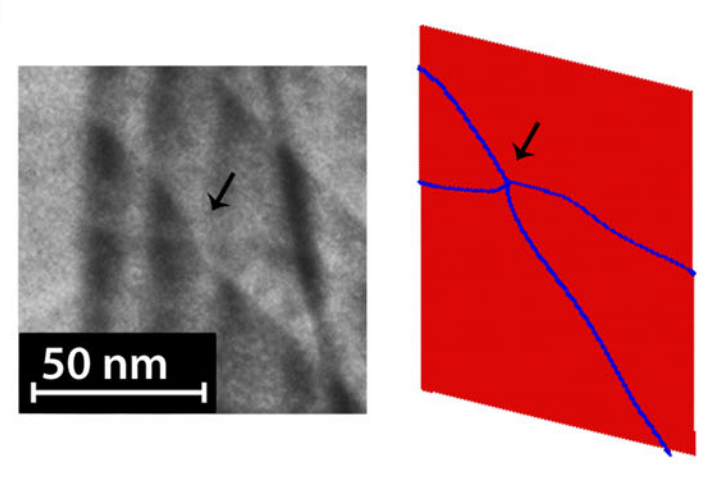 |
sources and coherent twin boundary in nickel bi-crystal Vahid Samaee, Maxime Dupraz, Thomas Pardoen, Helena Van Swygenhoven, We reveal new interactions mechanisms between screw dislocations and a Σ3 Coherent Twin Boundary in a sub-micron Ni bi-crystal using in situ Transmission Electron Microscopy and atomistic simulations |
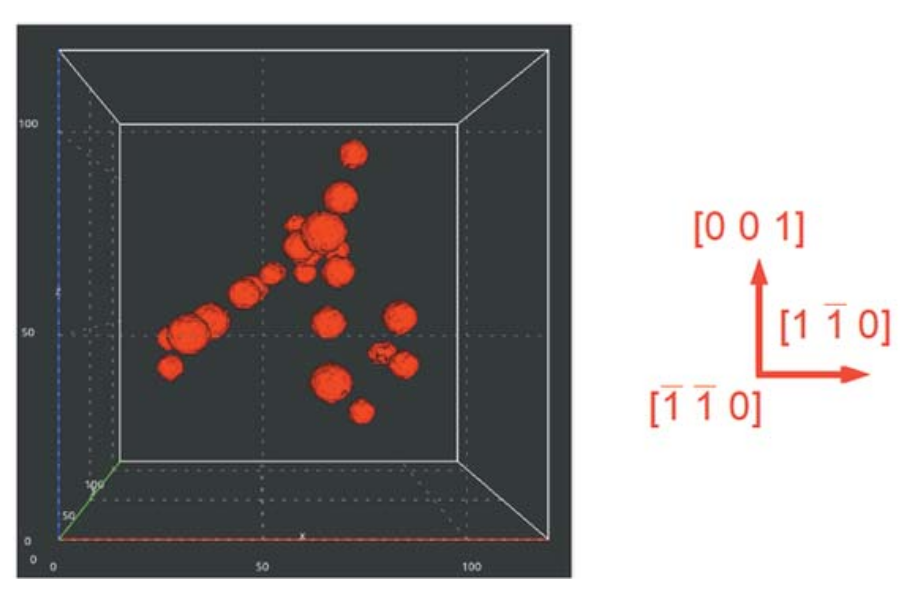 |
Maxime Dupraz, Steven J. Leake, Marie-Ingrid Richard We carry out a detailed numerical analysis which demonstrates the relevance of BCDI for the imaging of coherent precipitates and more generally ordered phases |
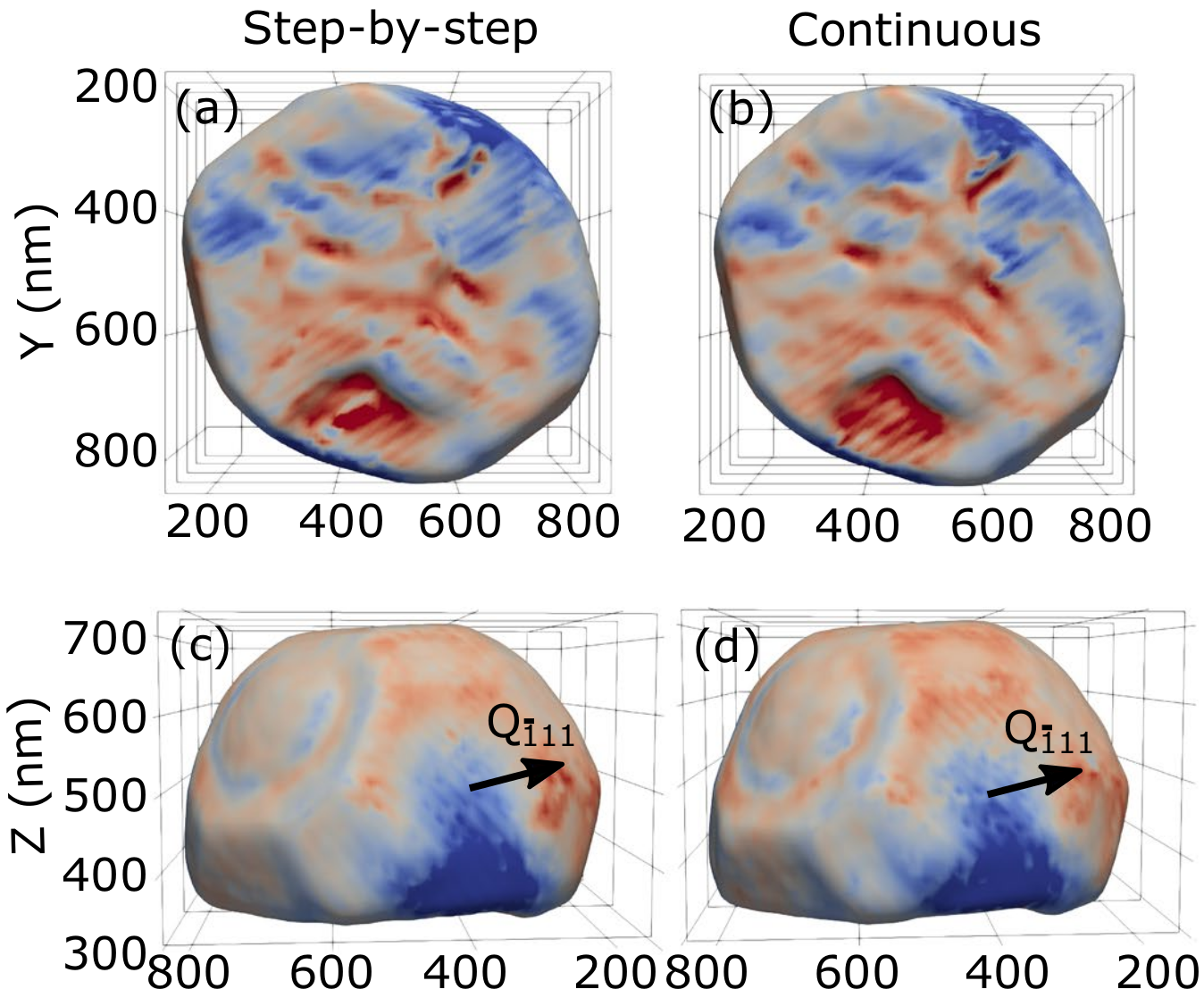 |
Ni Li, Maxime Dupraz, Longfei Wu, Steven J. Leake, Andrea Resta, We explore the use of continuous scanning during data acquisition for Bragg coherent diffraction imaging , i.e., where the sample is in continuous motion. |
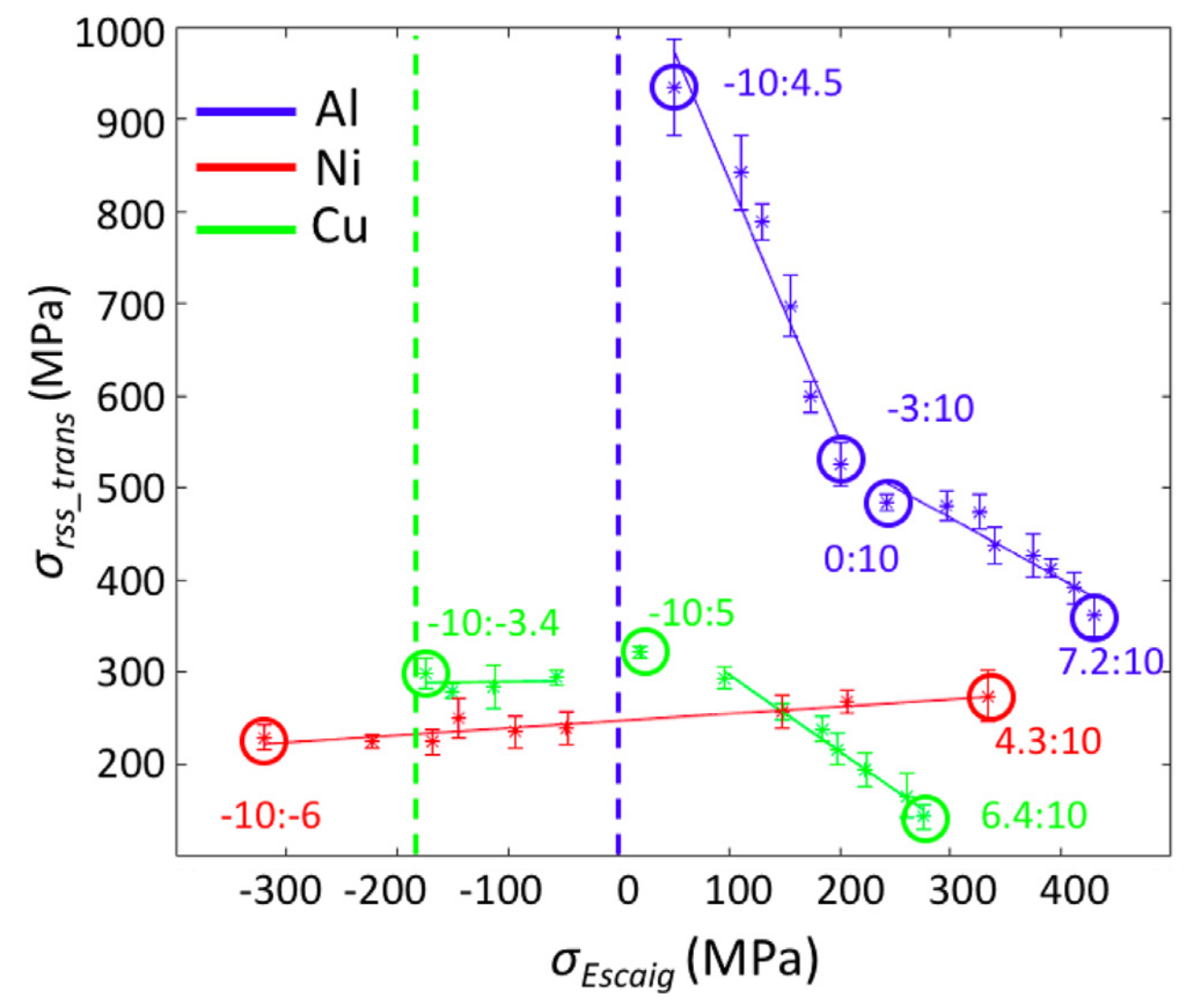 |
Satish I. Rao, Maxime Dupraz, Chris Woodward, Triplicane A. Parthasarathy We present an analytic mechanistic model that reproduces accurately atomistic simulations results for the transmission mechanisms and critical transmission stress of a screw dislocation across Σ3 coherent twin boundary in Al, Ni and Cu. |
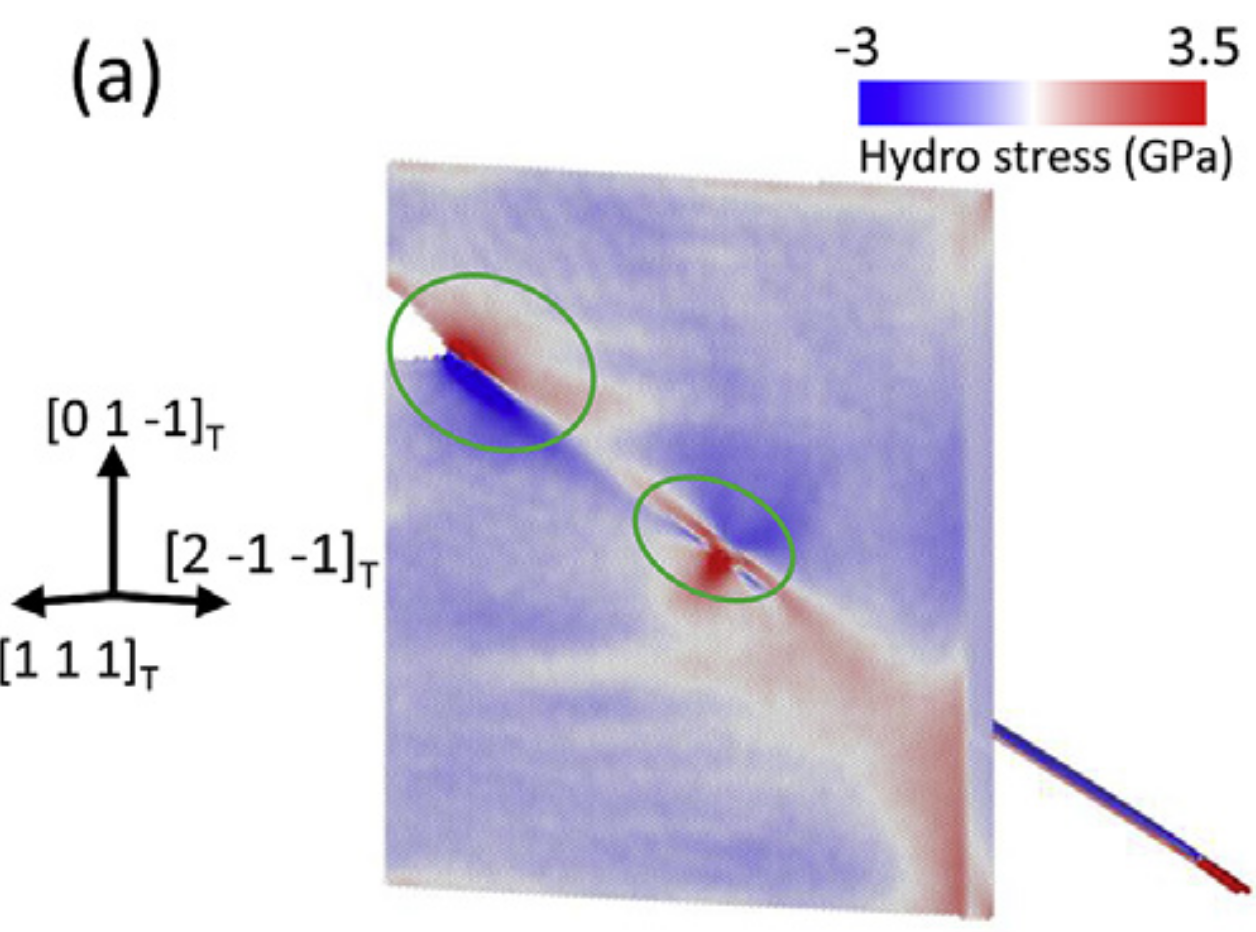 |
Maxime Dupraz, Satish I. Rao, Helena Van Swygenhoven We use large scale 3D atomistic simulations to study the influence of multiaxial stresses on the interaction between a curved dislocation and a Σ3 coherent twin boundary in Al, Ni and Cu. |
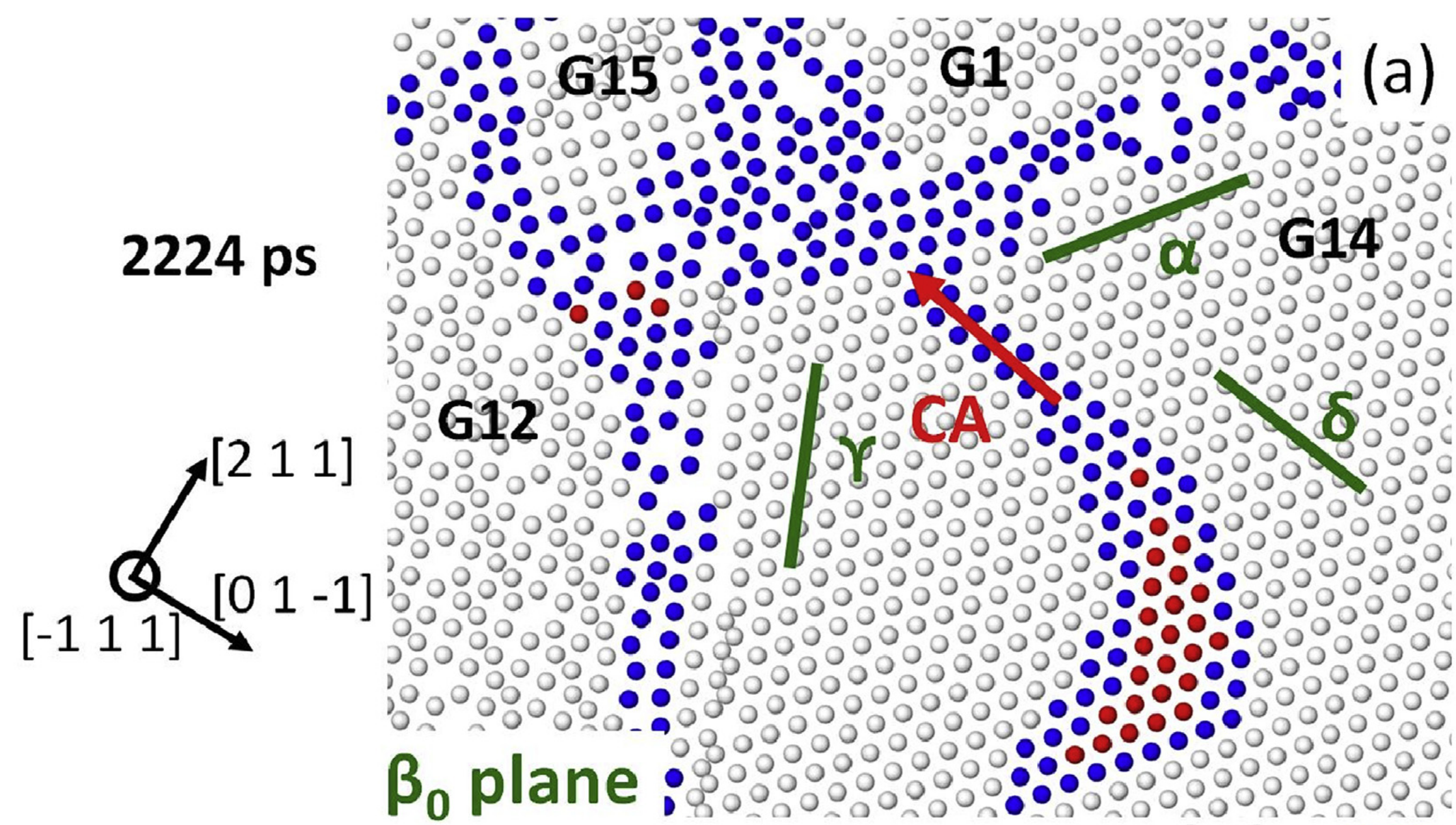 |
Maxime Dupraz, Zhen Sun, Christian Brandl, Helena Van Swygenhoven We carry out Molecular dynamics simulations of transient stress drops in different regimes on a nanocrystalline Aluminium sample. We reveal new deformation mechanisms associated to the low strain rate of the simulation |
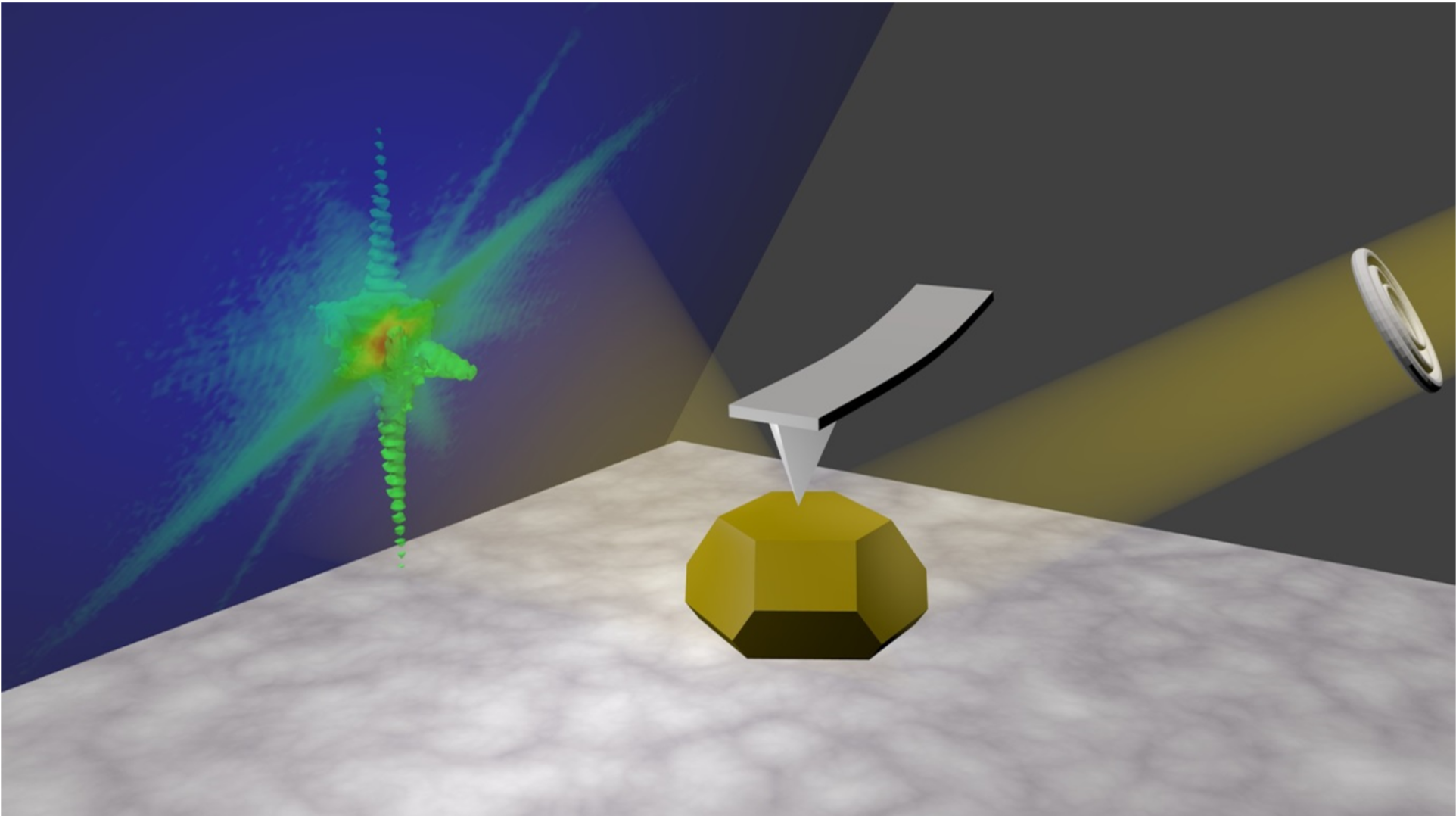 |
Maxime Dupraz, Guillaume Beutier, Thomas W. Cornelius, Guillaume Parry, Zhe Ren,
Stéphane Labat, Marie-Ingrid Richard, Gilbert A. CHahine, Oleg Kovalenko, Marc De Boissieu,
Eugen Rabkin, Marc Verdier and Olivier Thomas We use Bragg Coherent Diffraction Imaging to reveal in 3D the evolution of the microstructure of a nanocrystal exosed to in situ mechanical loading. |
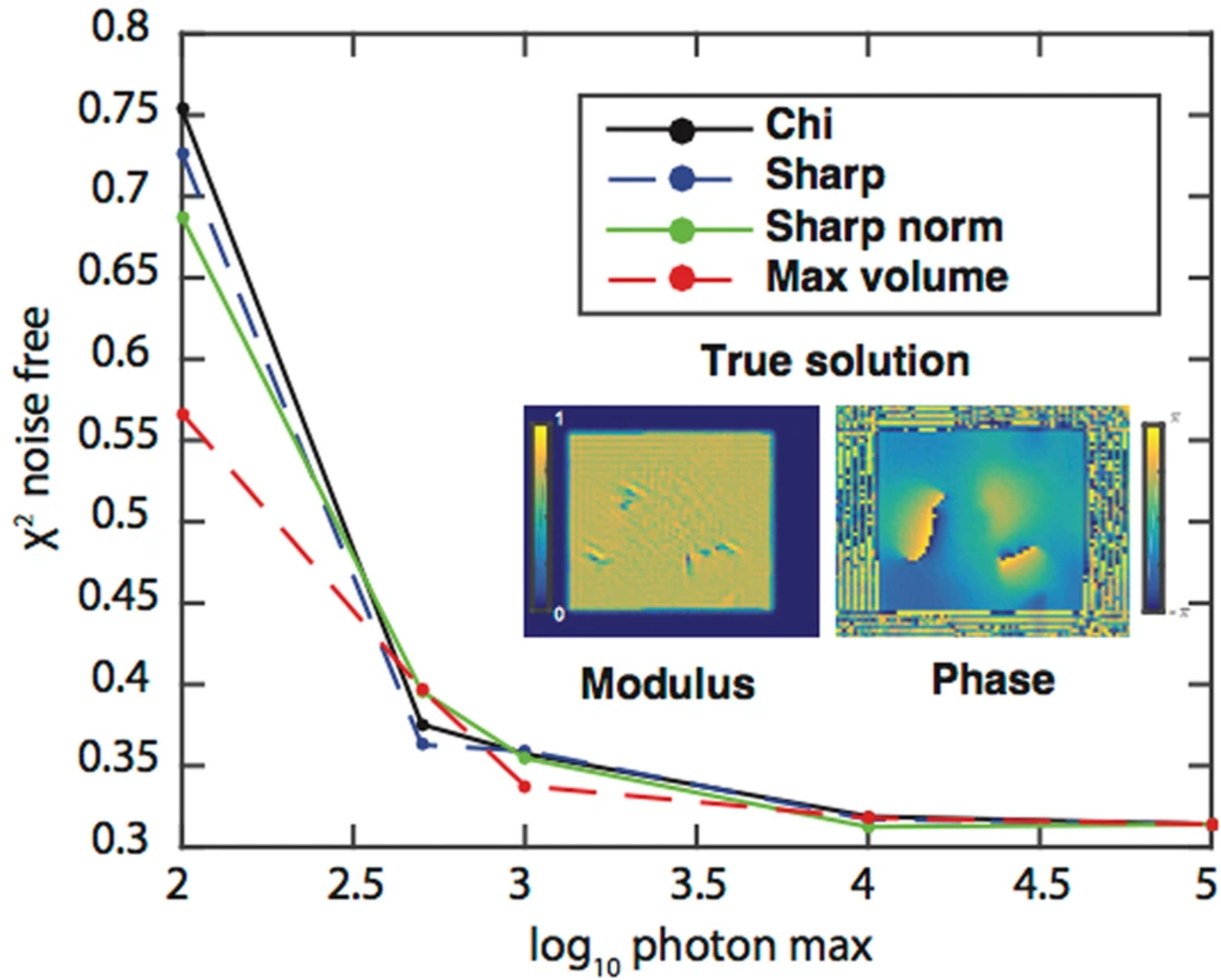 |
Andrew Ulvestad, Youssef Nashed, Guillaume Beutier,
Marc Verdier, Stephan O. Hruszkewycz and Maxime Dupraz We use numerical simulations to explore different guided phase retrieval algorithms for imaging defective crystals using BCDI |
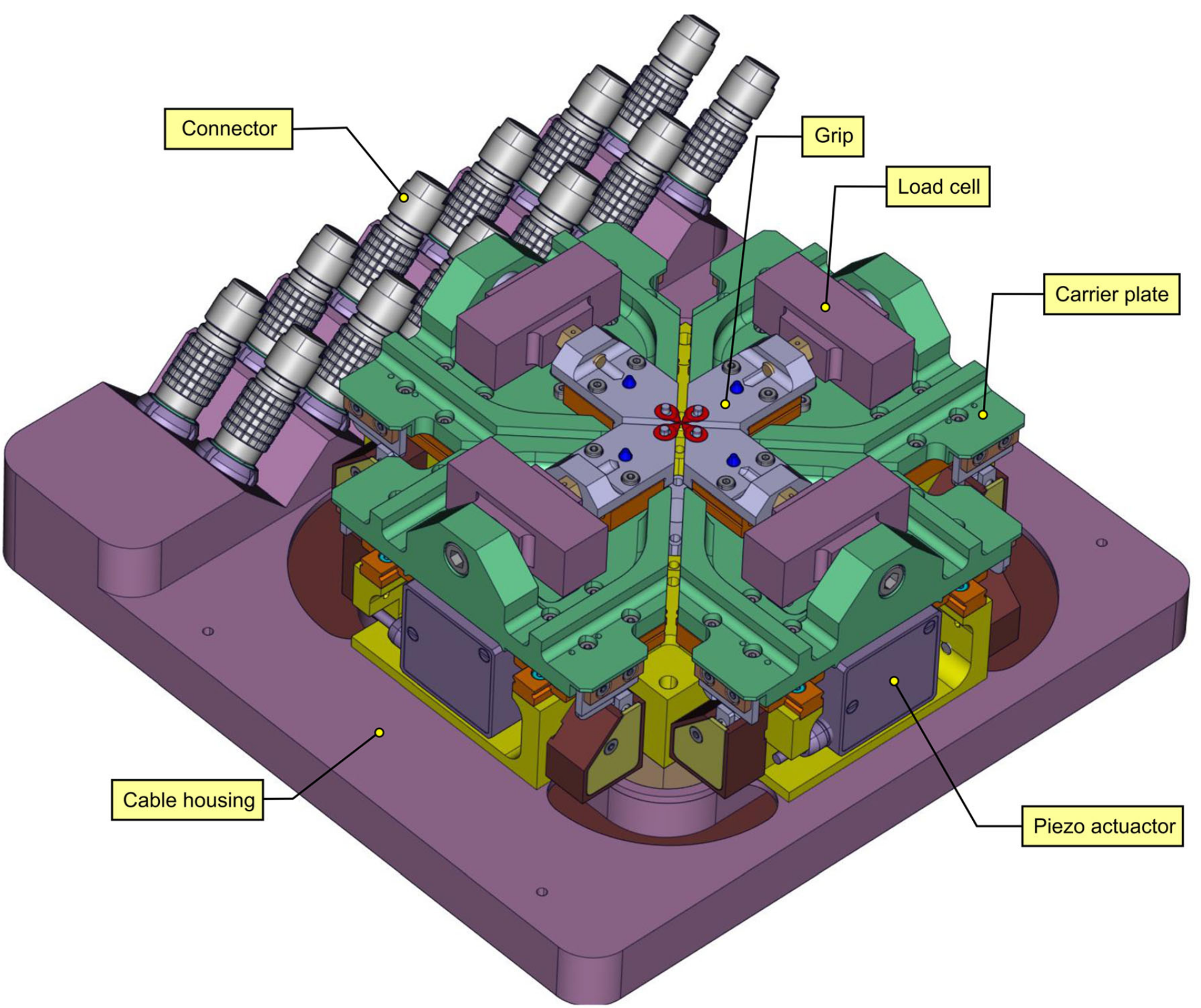 |
Steven Van Petegem, Antoine Guitton, Maxime Dupraz, Alex Bollhalder,
Karl Sofinowski, Manas V. Upadhyay and H. Van Swygenhoven We present a novel miniaturized biaxial deformation rig which allows to apply in-plane biaxial stress states and to perform strain path changes on thin-sheet materials |
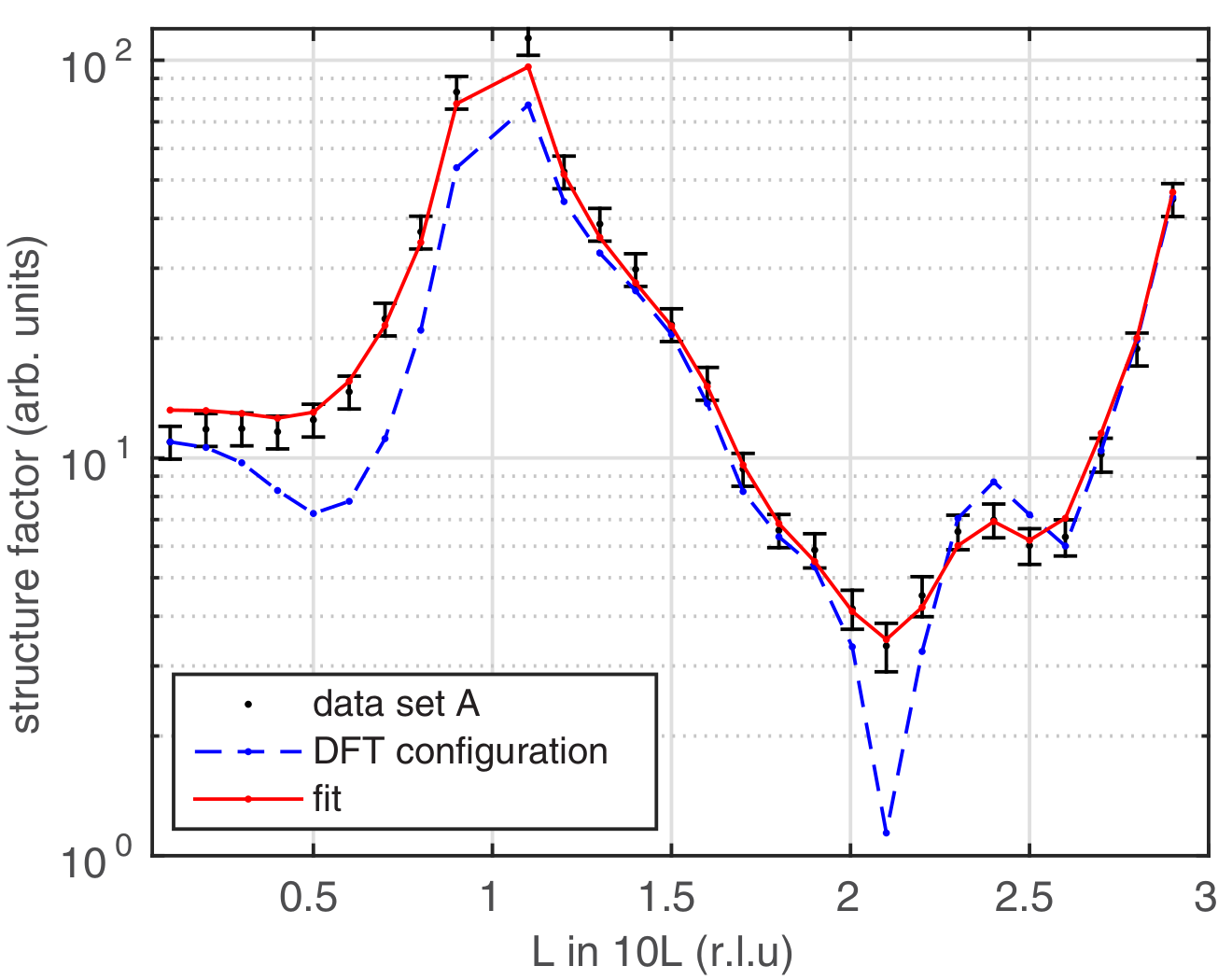 |
Maxime Dupraz, Roberta Poloni, Kitti Ratter, David Rodney,
Maurizio De Santis, Bruno Gilles, Guillaume Beutier and Marc Verdier We combine Surface X-ray Diffraction measurements and Density Functional Theory Calculation to reveal the structure of the Cu-Ta(0 0 1) interface. |
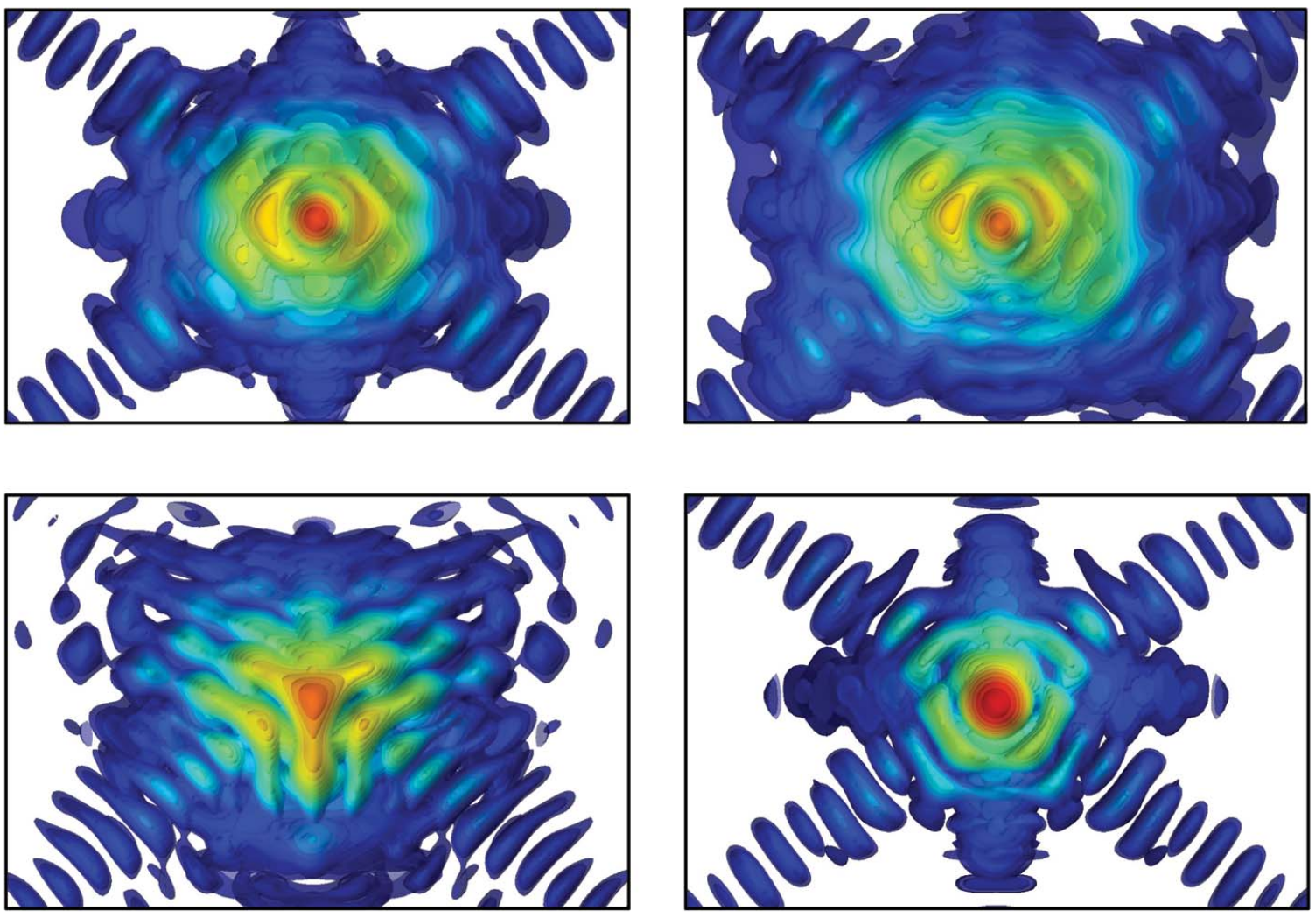 |
Maxime Dupraz, Guillaume Beutier, David Rodney, Dan Mordehai and Marc Verdier We carry out a detailed numerical analysis to reveal the signature of individual crystal defects in Coherent X-ray Diffraction Patterns in the vicinity of allowed Bragg reflections. |
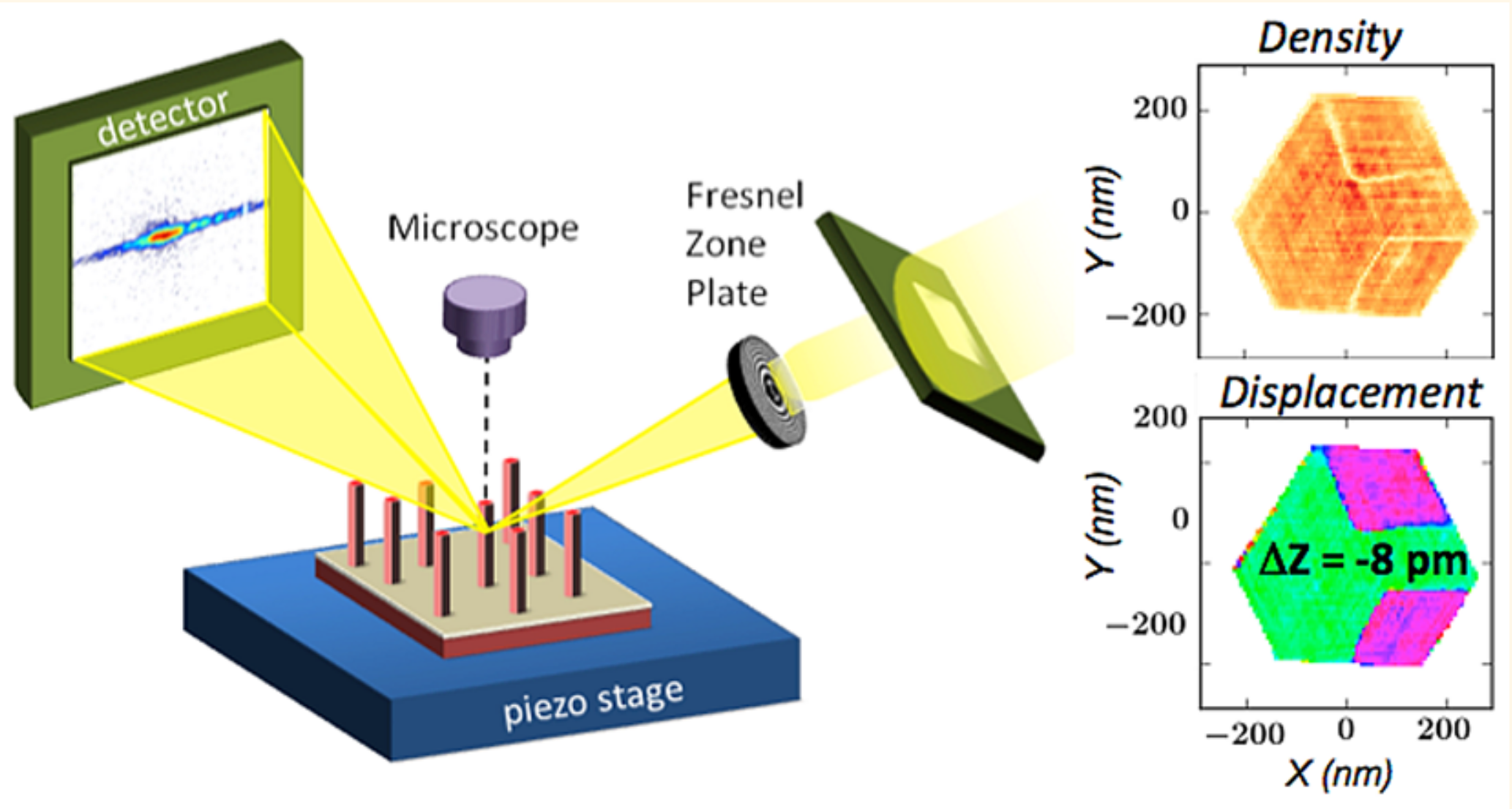 |
Stéphane Labat, Marie-Ingrid Richard, Maxime Dupraz, Marc Gailhanou, Guillaume Beutier,
Marc Verdier, Francesca Mastropietro, Thomas W. Cornelius, Tobias U. Schülli,
Joël Eymery, and Olivier Thomas We reveal the microscopic configuration of Inversion Domain Boundaries inside n-doped gallium nitride wires by Bragg Coherent Diffraction imaging. |
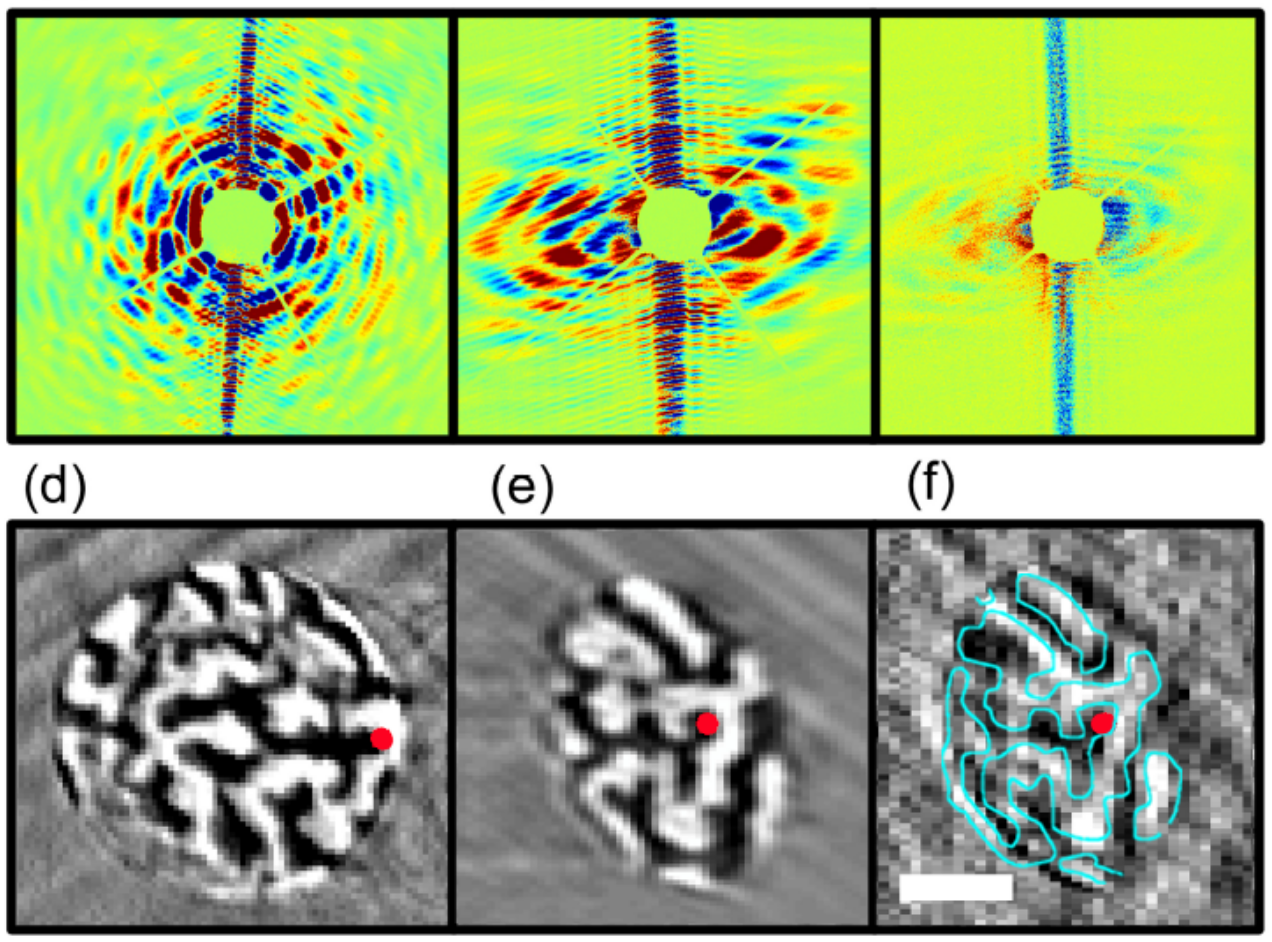 |
Thomas A. Duckworth, Feodor Y. Ogrin, Guillaume Beutier, Sarnjeet S Dhesi, Stuart A Cavill, Sean Langridge,
Amy Whiteside, Thomas Moore, Maxime Dupraz, Flora Yakhou We present a method to determine the magnetic configuration of an in-plane magnetized permalloy layer using Fourier transform holography with extended references in an off-normal geometry. |
|
Design and source code from Jon Barron's website and Leonid Keselman's Jekyll fork. |